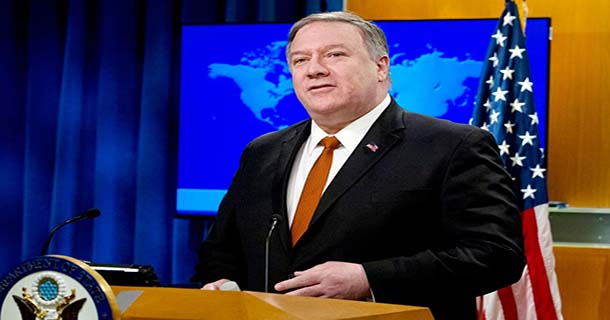
US Secretary of State Mike Pompeo during the release of the 2018 Country Reports on Human Rights Practices
Photo: The Washington Post
The United States State Department’s Human Rights Report for 2018 has affirmed that people of Tibet have been enduring discrimination and persecution under Chinese rule, including strict restrictions on their most basic and fundamental rights, and increased isolation from the outside world.
According to the report released on March 13, the Department “documents substantial interference with the rights of peaceful assembly and freedom of association; severe restrictions of religious freedom; significant restrictions on freedom of movement; and restrictions on political participation.”
The report highlights several areas of discrimination towards Tibetans, mentioning that the top Communist Party positions in the Tibet Autonomous Region (TAR), as well as in all other Tibetan areas, are held by ethnic Chinese.
The report states that “Within the TAR, ethnic Chinese also continued to hold a disproportionate number of the top security, military, financial, economic, legal, judicial, and educational positions. The law requires Party secretaries and governors of ethnic minority autonomous prefectures and regions to be from that ethnic minority; however, ethnic Chinese were party secretaries in eight of the nine TAPs [Tibetan autonomous prefectures] located in Gansu, Qinghai, Sichuan, and Yunnan Provinces.”
Matteo Mecacci, president of the International Campaign for Tibet (ICT), an advocacy organisation based out of Washington, DC, added his own outlook on the report, saying that “The 2018 State Department human rights report details once again the widespread human rights violations suffered by the Tibetan people under China’s rule.”
Mecacci further stated “While it oppresses Tibetans and all sorts of dissidents at home, the Chinese government continues to threaten the very existence of a rules-based international human rights system and other international norms that must be protected.”
The report even calls attention to the many Tibetan monks and nuns choosing to wear non religious clothing to avoid harassment when outside of their monasteries and goes on to highlight issues such as lack of access to Tibet and the unavailability of adequate educational opportunities for Tibetan children to study in Tibetan schools.
China has since responded to these allegations by the US with their own accusations of prejudice and discrimination.




 Print
Print Email
Email